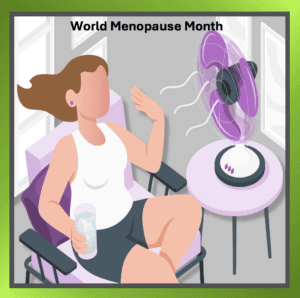Understanding and Supporting Menopause in the Workplace
October is World Menopause Month, dedicated to raising awareness about menopause and perimenopause, improving health and well-being, and destigmatising these topics.
World Menopause Day is observed on October 18th, highlighting specific themes such as lifestyle medicine or hormone therapy.
Menopause at Work
Menopausal women are the fastest-growing demographic in the workforce, making open discussions about menopause at work more crucial than ever. Companies like Royal Mail, the BBC, and Tesco have pledged to support employees affected by menopause. But what can smaller businesses do?
Supporting Employees
- Regularly communicate with staff to address concerns early.
- Understand legal obligations under the Equality Act 2010 and Health and Safety at Work Act 1974.
- Implement a menopause policy to provide clarity and support.
Understanding Menopause
Menopause typically occurs between ages 45 and 55, marking the end of menstrual cycles due to declining oestrogen levels. Symptoms can disrupt work, making it vital for employees to discuss their needs with management.
Symptoms
In the months or years leading up to menopause (perimenopause), your employee may experience some of these signs and symptoms;
- Irregular periods
- Chills
- Night sweats
- Sleep problems
- Mood changes and irritability
- Weight gain and slowed metabolism
- Thinning hair and dry skin
- Loss of breast fullness
- hot flushes and dizziness
- palpitations and breathlessness
- irregular periods and heavy bleeding
- painful menstrual cramps
- headaches and migraines
- low energy levels and fatigue
- reduced concentration and memory loss
- increased emotional sensitivity and loss of confidence
What can an employee do?
If you are experiencing menopausal symptoms that are starting to impact your ability to work, you should try to speak to your manager and let them know what you are going through. This may feel awkward in a professional environment especially if your manager is someone you don’t feel comfortable talking to about personal matters. Try talking to another member of the management team or talk to HR.
Before speaking to someone you could try:
- taking notes of your menopausal symptoms and how or when they are affecting you
- preparing what you plan to discuss with a friend
- thinking of solutions that you think could help your situation
How as an employer can you support your people?
Having a menopause policy in place is not, as a matter of law, a mandatory requirement. However, by failing to support those staff who may be suffering from menopause-related symptoms, can potentially give rise to a number of practical and legal risks.
From a practical point of view, a lack of adequate support for sufferers can lead to:
- poor employee engagement and low morale
- reduced performance and lost productivity
- high rates of sickness-related or even unauthorised absenteeism
- poor working relationships and conflict at work
- a damaged employer-employee relationship
- loss of valuable members of staff who feel forced to resign
If you don’t have a menopause policy in place, now might be the right time to consider getting one in place.
You may want to adjust your current policies to take into consideration the needs of staff who may be going through the menopause. This may include your:
- Sickness policy – to support staff who may need time off due to menopausal symptoms.
- Absence policy – to support staff who need time off to attend medical appointments.
- Flexible working hours – to consider possible adjustments to start and finish times if needed.
- Adjustments to physical environment – include adjusting the air conditioning, providing employees with a fan, or the option to move to an alternative desk.
- Female only spaces for rest/changing – access to female only washing and facilities which allow employees to rest, dispose of sanitary products and take a break from their working day.
Tick HR can Help?
Our HR team can advise and guide you on how to approach menopause in the workplace. We can certainly help implement a menopause policy for your business. For help and guidance call us today.

